‘Chalo’ is no longer a casual word; here’s why
Close to 20,000 people took to the streets across the country, all driven by anger, disappointment, fervour and this one word – ‘chalo’
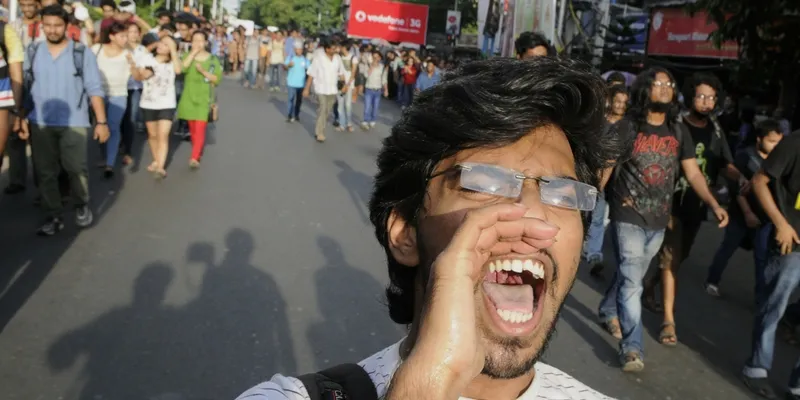
"Equality may be a fiction but nonetheless one must accept it as a governing principle." These are the words of India’s first law minister, the man who ensured that article 11 of the Indian Constitution, which encouraged untouchability, was abolished for good; these are the pragmatic and wise words of the man who stood by the oppressed and downtrodden, Dr B R Ambedkar.
Ambedkar’s 50 years of work to annihilate the caste system has moved an adamant system by an inch or so, but only in policies. The government of India recognises the atrocities against Dalits in the Scheduled Caste and Scheduled Tribe (Prevention of Atrocities Act), 1989, giving them access to education, employment, and legislative representation through reservations. But the social acceptance of Dalits and other minorities is still far from being a reality, and the social reform envisioned by Ambedkar has remained a dream.
The denial of human rights to Dalits is evident in data. According to Livemint, nearly two Dalits were lynched every day between 2010-14, and according to the National Crime Records Bureau figures cited by Livemint, an average of 663 Dalits are murdered annually.
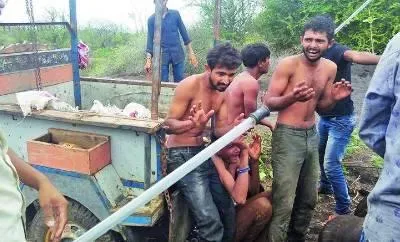
In recent times, atrocities against minority groups have increased due to the rise of proud, self-proclaimed cow vigilantes. Although the ban of cow slaughter was first introduced in 1995 by the Congress, it was the right-wing's campaign in 2015 following the Dadri mob lynching, where a Muslim man alleged to have possessed beef was beaten to death, that gave the gaurakshaks the conceited belief that they could take the law into their own hands.
And so fell the dominoes; the continued violence against minority groups perpetrated by cow vigilantes has given rise to the growing Chalo movement. People have been taking to the streets to march together, and assert their voice for justice, respect, and a long overdue equality. Muslim, adivasis, the LGBTQ community, sex workers, and nomadic tribes are among the oppressed who have joined this movement with Dalits to amplify the voice for justice.
Chalo Una
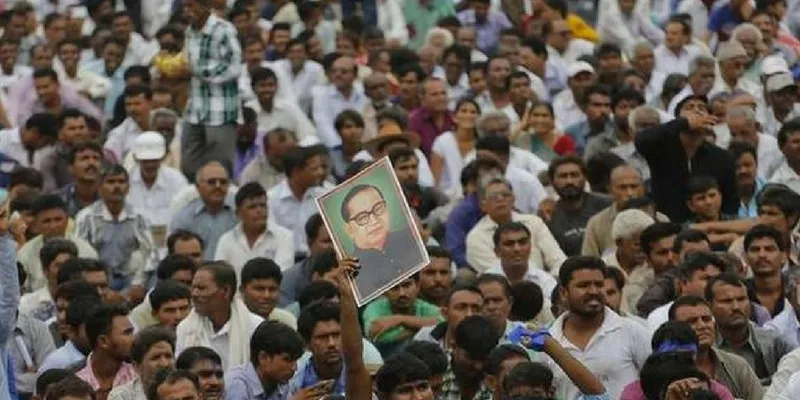
The fourth of August, 2016 saw a gathering of over 10,000 people determined to march from Ahmedabad to Una over a span of 10 days. The reason? They were retaliating against the flogging of four Dalit men which was the result of a hot-headed baseless assumption of cow slaughter. The video made online by the perpetrators incited rage among the people as the Dalit men were only skinning a carcass for the sale of its hide which is a common source of income.
The revolt led to Dalits refusing to dispose of dead cattle and instead disposing them in front of government offices. The march led by Jignesh Mevani, a social activist and lawyer, not only led to state wide protests but also gained support from Dalit organisations in North America as they too held protests in major cities in solidarity.
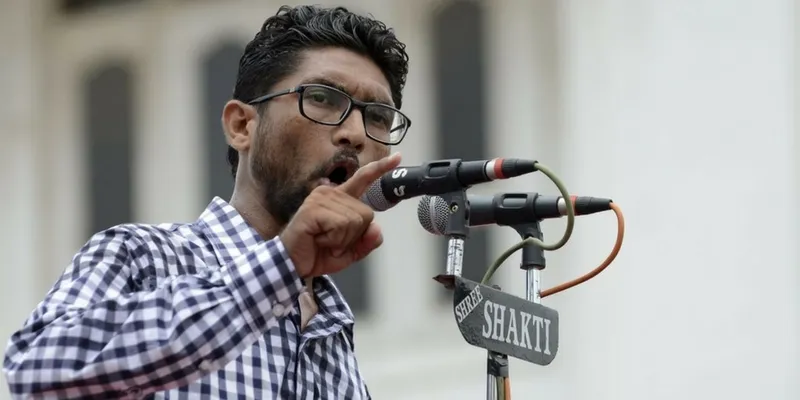
In India, the voice and impact was deafening. Prime Minister Narendra Modi addressed the public condemning the gaurakshaks for the first time. It has even been speculated that these large scale protests that brought India under international scrutiny, was the major reason behind the resignation of then Gujarat CM Anandiben Patel. According to BJP sources that revealed to The Indian Express, the party faced immense heat from the opposition for allegedly backing the gaurakshaks which triggered Patel’s resignation.
Chalo Udupi
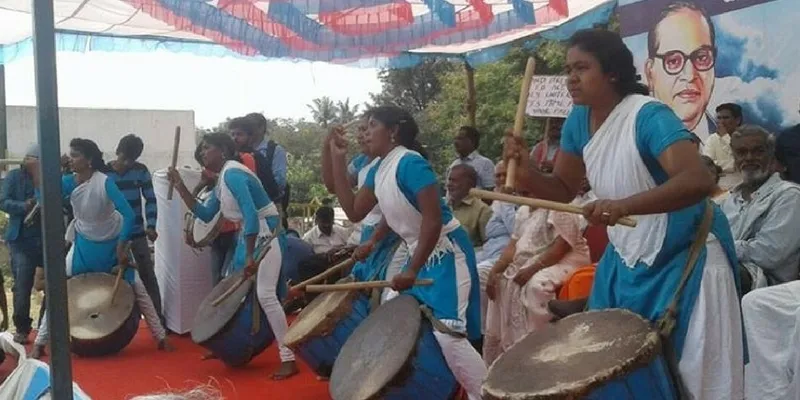
Just six days following the Una flogging, some 30-40 Bajrang Dal members beat up and threatened a Dalit family in Karnataka over the same beef row. Following this incident in August, Praveen Poojary, a member of the backward classes was brutally beaten and murdered under the assumption that he was transporting cows to a slaughter house. These incidents triggered the Chalo Udupi movement in Karnataka which drew its inspiration from Chalo Una.
Over 5,000 people gathered for this march which commenced in Bengaluru on October 4 and culminated in Udupi on October 10. There were talks and cultural performances such as folk songs and street plays which only strengthened and dignified their non-violent protests.
In the Chalo Una movement, Mevani had demanded five acres of land for all Dalit families, the right to eat food of their choice, and action to be taken against perpetrators; the same demands were held for the Chalo Udupi movement in addition to reservations being extended to the private sector. The rally passed through Nelamangala, Kunigal, Channarayapatna, Hassan, Belur, and Chikmagalur with fervent speeches and cultural performances. The energy from these movements was so contagious that plans for Chalo Thrissur, Chalo Thiruvananthapuram and Chalo Dilli kicked off almost immediately.
Chalo Nagpur
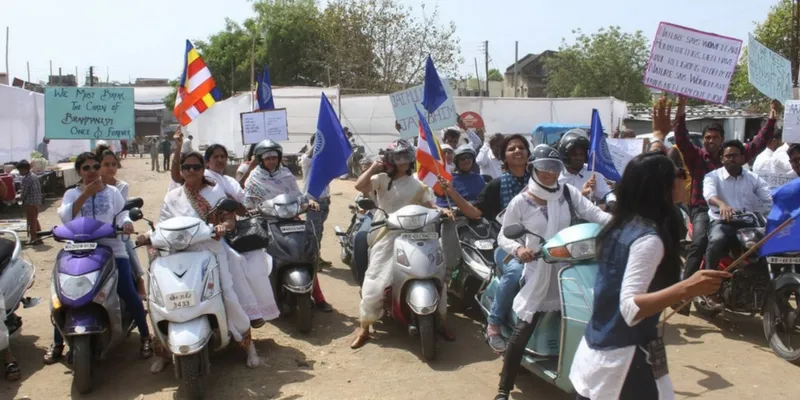
On March 10, Kamptee Road in Nagpur saw a gathering of over 4,000 women demonstrating peacefully under Chalo Nagpur. This time, the protest was not a reaction to any specific instance of injustice; from minority communities as diverse as LGBT, Muslim, differently-abled, Dalit and sex-workers, these women were condemning all discriminatory practices, be it state violence, exploitation of women, denial of work, or patriarchy.
Related read: Govt to create 2.5Lakh dalit entrepreneurs under Stand Up India
Their demands from the state were no less solemn; they insisted that marital rape be viewed as a crime by the law and that quotas for women be increased, inclusive of diverse representations. By reclaiming their fundamental right to dissent, they condemned the Armed Forces (Special Powers) Act and the retainment of Section 377 among other draconian law enforcements.
Their message to the world reflected and encapsulated the purpose of all ‘chalo’ movements:
In a secular democratic state, no one has the right to discriminate, humiliate, violate oppress or commit atrocities against any person or community based on their identity.
As we near our 70th year of independence, it is imperative to question – how secular or democratic are we, really?







